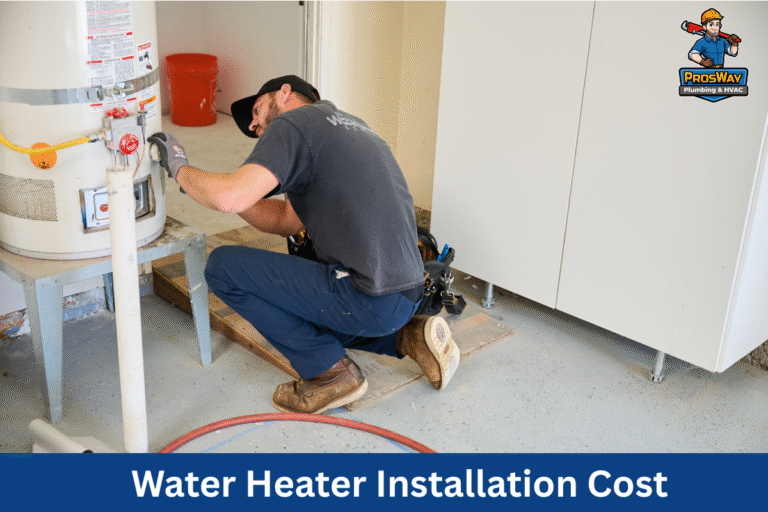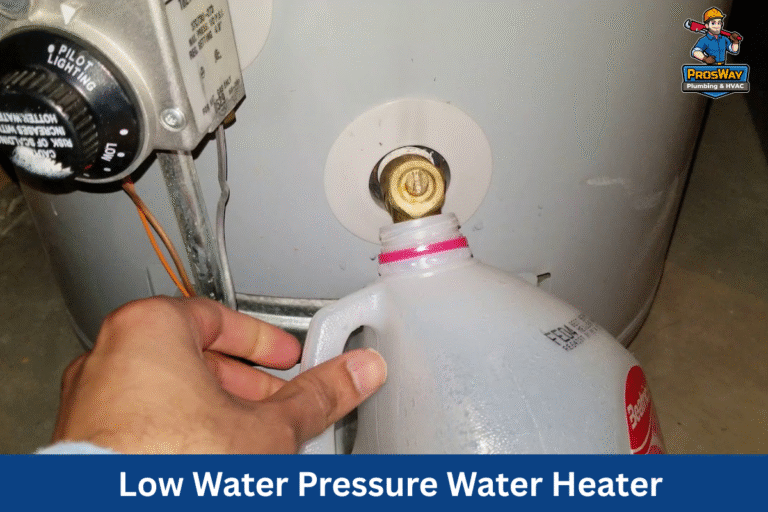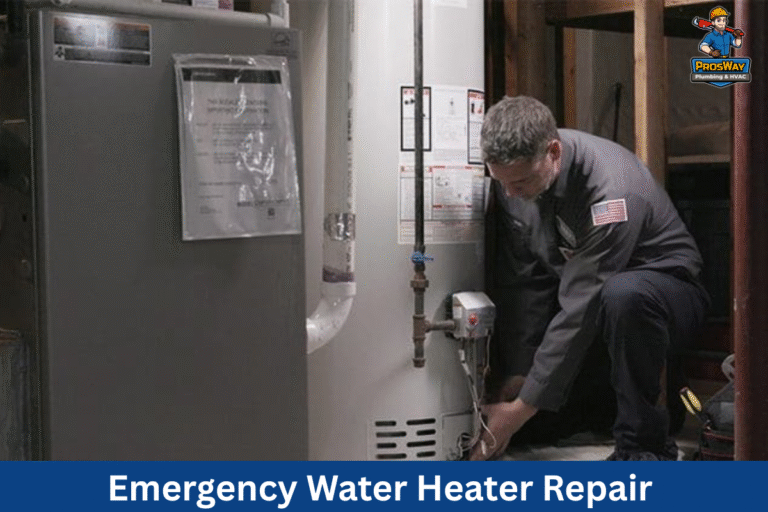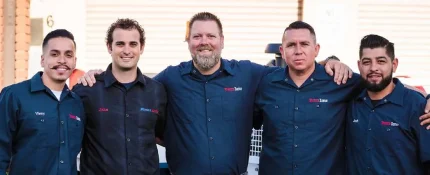This article explains why permits and inspections matter in sewer line replacement and sewer line repair projects. We will outline local regulations, safety standards, cost breakdowns, and financial risks if permits are neglected.
Reading this will help you better understand your contractor’s estimate and decide if permit fees are included. This information is especially useful for residential property owners in Northern New Jersey looking for reliable plumbing and HVAC services.
Key Takeaways
- Permits ensure your sewer work complies with local regulations and safety standards.
- Inspections validate proper installation, which can affect overall replacement costs.
- Understanding which fees are included helps avoid unexpected fines or re-inspection charges.
- Ask your contractor detailed questions to guarantee proper permit processing and documentation.
Why Permits Are Necessary for Sewer Line Replacement?

Local Regulations Mandating Sewer Work Permits
Local authorities require permits for sewer replacement to ensure work meets building codes. These permits protect public health by preventing unsafe installations. In New Jersey, permits are enforced under the International Building Code.
And failure to secure them may result in fines. Regulations help maintain a safe community and ensure qualified work. Sewer line replacement helps ensure that the installation is done correctly.
How do Permits Ensure Compliance and Safety Standards?
Permits require detailed plans and inspections to verify that installations meet safety standards. This process covers proper materials, installation methods, and environmental protections.
Permits also ensure that the work will support future property sales without hidden liabilities. Ensuring compliance improves durability and reduces risks.
The Connection Between Permits and Your Sewer Line Replacement Project’s Legitimacy
A secured permit shows that your project passed scrutiny from local authorities. This legitimacy protects homeowners from fraudulent work and offers recourse if issues arise. It also promotes long-term reliability in sewer performance. For property owners, knowing that permits are in place reassures them of quality work.
Typical Timelines for Obtaining Sewer Replacement Permits
Permit timelines depend on the project scope and local regulations. Typically, permits take a couple of weeks to process, although delays may occur in busy municipalities. Homeowners should ask for estimated timelines and include potential delays in cost planning.
Are Permit Fees Included in Sewer Replacement Estimates?
Many contractors include permit fees in their overall cost estimates. However, some provide permits as a separate line item. It is essential to carefully review your estimate to understand if these fees are included. This transparency avoids surprises when final invoices arrive.
What Inspections Are Needed During Sewer Line Replacement?
Types of Inspections Required During Sewer Line Replacement
Inspections are mandatory at different stages of sewer work. Pre-installation, mid-project, and final inspections help verify every step.
Each inspection confirms compliance with safety codes and proper material usage. Common inspections include structural integrity and adherence to local sewer standards.
How Inspections Validate Proper Installation and Materials?
Inspection appointments ensure that materials and installation methods meet industry standards. Proper inspections confirm that no shortcuts were taken.
Validated installations provide added peace of mind and reduce future repair costs. Homeowners receive documented proof when work meets ready-for-use conditions.
Does the Quoted Cost of Sewer Line Replacement Account for Inspection Appointments?
Reputable contractors clearly include inspection fees in their estimates. Some contractors list these as part of an all-inclusive cost package, while others itemize them separately. Always request a detailed breakdown to know what you are paying for.
What to Expect During a Final Sewer Line Inspection?
During the final inspection, officials assess the completed work for compliance with all permits and codes. This stage confirms that the sewer line replacement is safe and functional. Homeowners should be present to address any pending issues and receive final documentation.
Watch this video: What is Sewer Line Inspection and Why is it so important!
Consequences of Failed Inspections on Your Overall Replacement Expense
If the work fails inspection, you could face additional costs for repairs and subsequent re-inspection fees. Non-compliant work may force you to redo parts of the project, significantly increasing your overall expense. Addressing these issues early saves time and money.
Does the Cost of Sewer Line Replacement Usually Include Official Permissions?
Contractors often bundle permit fees into the overall project quote. This practice simplifies billing and ensures that all regulatory costs are covered upfront. It also demonstrates transparency and helps prevent additional charges later.
How to Determine if Your Estimate Details Permit and Inspection Charges?
Review the written estimate carefully. Look for specific notes about permit applications and inspection fees. If these charges are not clearly itemized, ask your contractor for further clarification.
Why Does Sewer Line Pricing Vary Across Contractors?
Pricing may vary across contractors, and some include permits while others charge them separately. Comparing multiple estimates helps you understand the market rate and your contractor’s pricing practices.
Clarifying Who Is Responsible for Securing Permits for the Replacement
Typically, the contractor handles securing permits, but this should be confirmed in your contract. Homeowners must verify this responsibility to avoid delays.
When Are Permits and Inspections Separate Line Items in the Cost?
Some estimates separate permit fees and inspection charges when the work involves numerous inspections or additional administrative work. This disclosure provides clarity and helps manage your project budget.
What Should You Verify About Permits and Inspections in Your Sewer Replacement Estimate?
Examine your contractor’s proposal closely. Check for language that confirms permits and inspections are included. A detailed proposal should mention all administrative fees related to permits.
What Specific Wording Indicates Inspection Costs In the Estimate?
Look for terms like “inspection fee,” “permit processing,” or “administrative charges” in the contract. Specific wording prevents misunderstandings about cost breakdowns.
Requesting a Detailed Breakdown of Sewer Line Replacement Costs
When in doubt, request a line-item breakdown of all costs. This transparency helps identify which fees are for actual labor and which cover permits and sewer line inspections.
Why Written Confirmation of Permit Inclusion Matters?
Written confirmation protects you if disputes arise later. It ensures that both parties agree on the cost and scope of work, including permit fees and inspection costs.
Who is responsible for re-inspection fees if the work fails?
Confirm with your contractor who will cover any additional fees if the work fails inspection. A clear contract prevents unexpected financial burdens.
What Are the Financial Downsides of Missing Permits and Inspections?

Risks of Proceeding Without Required Sewer Permits
Skipping permits means non-compliant work, which could lead to legal issues or fines. Working without permits jeopardizes safety and may violate local building codes.
Unexpected Fines and Penalties for Non-Compliance
Authorities may impose substantial fines if inspections reveal unpermitted work. These fines add hidden expenses to your project.
How Unpermitted Work Affects Future Property Sales?
Non-compliant sewer work can lower property value and complicate future sales. Buyers often require proof of permits before purchasing a home.
The Added Expense of Obtaining Retroactive Permits and Inspections
If you must secure retroactive permits, the cost increases significantly compared to planned permit fees. Retroactive permits may also lead to delays in project completion.
Could Your Sewer Line Replacement Cost Increase Significantly Without Proper Authorizations?
Failure to follow permit regulations can cause your final bill to balloon due to fines, re-checks, and mandated repairs. Budgeting for permits is essential to avoid financial surprises.
Frequently Asked Questions
Why are permits necessary for sewer line replacement?
Permits ensure that installations meet local building codes and safety standards. They protect public health and add legitimacy to the project, which can influence property value.
How much do permit fees usually cost?
Permit fees vary based on local jurisdiction and project scope. Some contractors include these costs in overall quotes, while others list them separately. Always ask for a detailed breakdown.
What happens if my sewer work fails inspection?
Failing an inspection may require corrective action, which can increase your overall project cost. It may also lead to delays until the work passes all required inspections.
Who manages the permit application process?
Typically, the contractor handles the entire permit process. It is important to confirm this in your contract to avoid any misunderstanding about project responsibilities.
Can unpermitted sewer work affect my home’s resale value?
Yes, unpermitted installations can lower your home’s resale value and cause issues during property transactions, as buyers often demand documentation of proper permits.
Final Thoughts
Permits and inspections are essential parts of sewer line replacement costs. They ensure compliance with local regulations, verify the use of proper installation methods, and protect you from unexpected expenses. Taking the time to review your contractor’s estimate and asking detailed questions will help prevent future issues. Always prioritize projects that include accredited permit handling and comprehensive inspections for long-term value.
Get Clarity Before You Commit! Call ProsWay
Many homeowners overlook permit and inspection fees in sewer line projects, leading to surprise costs later. At ProsWay Plumbing & HVAC, we provide clear, upfront quotes with everything included. Get peace of mind— Call us now at (862) 260-5870 or Book Online today for a fully transparent estimate!








